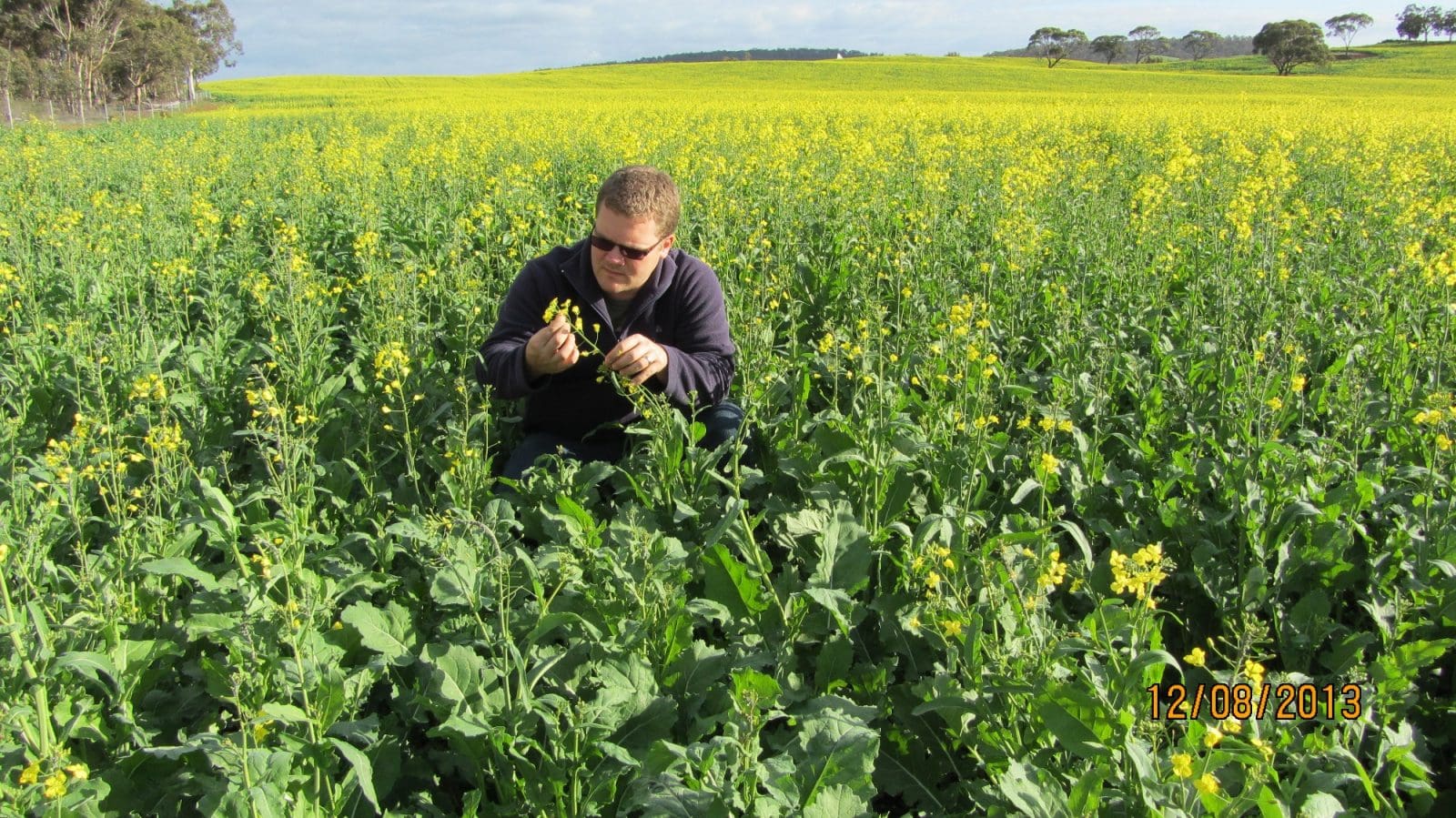
DPIRD research scientist Dr Dusty Severtson has been researching the proximity of the green bridge to canola crops as a predictor of risk to Diamondback moth. Photo: DPIRD
CANOLA crops close to a “green bridge” of brassica weeds and self-sown canola over spring and summer have an increased risk of being impacted by the crop pest diamondback moth, according to recent research.
The Western Australian Department of Primary Industries and Regional Development research findings were presented at the recent 2024 Grains Research and Development Corporation grains research updates.
Diamondback moth, which has a limited number of control options, costs Australian canola growers more than $10 million per annum in lost yield and management costs.
The research, co-invested by the GRDC, drew on wide-scale green bridge and focus-crop surveys across all WA port zones from 2019 to 2023.
It also considered the distance of crops from a green bridge and environmental variables, such as rainfall.
DPIRD research scientist Dusty Severtson said the research provided valuable intelligence to help growers devise more targeted monitoring and control strategies.
“Brassica weeds, such as wild radish and turnip, and volunteer canola generally gives diamondback moth a head start in colonising crops,” Dr Severtson said.
“In years with a widespread green bridge, early canola-crop colonisation is likely to occur over large areas.
“Localised summer rainfall typically leads to the formation of green bridge pockets, leading to increased DBM in smaller areas.
“Canola growers will be able to use this valuable information to tailor crop monitoring efforts to control diamondback moth specific to their region to optimise crop potential and profitability.”
Higher numbers of diamondback moths caught in pheromone traps proved to generally be a good predictor of subsequent larval infestations, while lower numbers showed higher variability.
“The rise in larvae counts was linked to total rainfall across the growing season, rather than be influenced by the number of rainfall events,” Dr Severtson said.
This is the first time that green bridge and focus crops have been monitored for DBM moths using pheromone traps in WA to get a better indication of their presence across large areas.
Previous research has shown diamondback moth affects about 30 per cent of WA canola crops in about half of years.
The pest has become challenging to manage, with increased resistance to many insecticides, which have become increasingly expensive.
Dr Severtson said the research would give scientists, advisers and growers a better understanding of diamondback moths and how to refine monitoring and control options.
“Further modelling is planned to tease apart environmental, agronomic and other variables on how best to manage this difficult pest, as part of another GRDC project,” he said.
“Sweep netting canola crops – although frustrating – is still important to gauge levels and inform control thresholds.”
GRDC crop protection manager – west Georgia Megirian said the project provided valuable data to inform diamondback moth, or DBM, management for WA growers.
“Across the four seasons of the project, there were notable variations in seasonal rainfall, temperatures, green bridge formation and canola production, providing valuable insights into the behaviour and population dynamics of DBM,” Ms Megirian said.
“Further analysis of the data will give Western Australian growers and advisers an improved understanding of what to expect when it comes DBM infestations.”
For more information on this research and other Grains Research Update papers and presentations visit https://grdc.com.au/events/past-events.
Source: DPIRD

HAVE YOUR SAY